Lives Matter History V. 5.4 (8/5/2024)
Sociologists study the meaning that is created and shared by society. They also study racial and social groups and how those groups maintain power. Sometimes within the same culture there can be a disparate message from the same cultural symbol. In this case, a flag can represent both - being for and against different groups of people. By hanging the flag publicly in a school, the institution sends the message that it is simultaneously supportive of one group and against another.
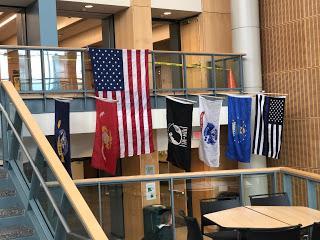
The flag on the far right (in the picture at the left) was hanging in the Stevenson High School Forum in Lincolnshire as part of a Veteran’s Day tribute during the week of November 11, 2019. It is a black US flag with a single blue stripe. It is sometimes called the thin blue line flag or the blue lives matter flag. The idea of a thin blue line was a play off an old poem from the 1800s called the thin red line. In the early 1900s, an American poet used the thin blue line to refer to the Army. But by the 1960s it was referring to law enforcement. The expression refers to the thin blue line that separates order from disorder and a legal society from a criminal one. The blue line is supposed to be symbolic of law enforcement which separates lawlessness and disorder from law and order. Sometime after the 1960s, a symbol/flag of a black background with a blue stripe (pictured to the right) was used to represent a "thin blue line" and thus, police. For more on the history of the expression and original flag see this link: https://en.wikipedia.org/wiki/Thin_blue_line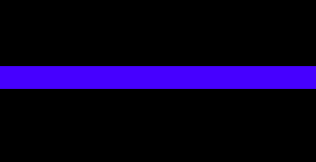
However, that more simple flag was not the one on display. The flag on display was not created until 2014. (I will detail how that came about, below.) The flag on display was the US flag version:
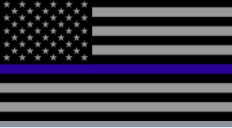
At first glance, this flag seems like a way to support first responders. I hypothesize that many people who see the flag give it meaning as supporting first responders. And I certainly support the good work that first responders do. My dad was a Chicago cop and I grew up in a neighborhood full of cops and I have many friends who became Chicago cops. It is a dangerous job. It is physically and mentally grueling. Police officers deserve credit and support from the community. I absolutely think that was the intent of the flag and the display.
However, this flag has a very different symbolic meaning to other Americans. An examination of the history of the flag reveals that the flag pictured in the commons is a very recent creation. It was created by private group in response to the Black Lives Matter Movement. This gives it a meaning of either being for black lives matter or for the police and this NIH research proves that empirically. I don’t believe that most Americans know the history that I will detail below. That’s why I wrote it. I think that most Americans inhabit an insular world where their understanding of society is socially reproduced and validated by an echo chamber. And so my hope is that examining the history below stimulates critical thought about whose lives really matter.
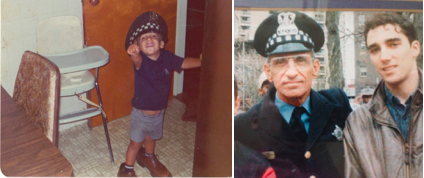
To understand the history and baggage that the flag carries with it, one must examine the black lives matter movement which begins at the death of Trayvon Martin in 2012 and the history of violence against police which predates that. What follows is more of a chronology with commentary - less of an expository and more of an annotated timeline. This was intentional because of both practicality and emphasis. The detailed list format is meant to provide the reader a salient but jarring overview of relevant events before and after the #BLM went viral. In order to emphasize this, I will use red to denote incidents of nonwhites being killed by police and blue to denote police who are killed.
Violence Against Police
Violence against police officers has always been considered heinous. Numerous memorials exist to remember police who have served their communities and given their lives in the line of duty. These memorials have never included the thin blue line flag. Even after 9/11, there were flags created to memorialize first responders. These flags didn't include that flag either. Below is the Chicago Police Memorial which does not include the flag.

White Supremacy Violence
Below are three different articles detailing violence against police by white supremacists. This violence goes back to at least 1990:
https://amp.mcclatchydc.com/news/nation-world/national/article196423174.html
White and far-right extremists kill more cops, but FBI tracks black extremists more closely, many worry
BY KATE IRBY, JANUARY 24, 2018
"White supremacist and other far-right extremist groups have killed 51 police officers since 1990, according to a report published by the Anti-Defamation League last week. Left-wing extremist groups, including black nationalists, killed 11 during the same period.
In 2017 alone, black nationalists and other leftists killed no police, while white supremacists and anti-government extremists fatally attacked a police officer and two corrections officers, the report said."
https://www.splcenter.org/20180927/42-law-enforcement-officers-murdered-domestic-extremists-2005
In 2005, the Southern Poverty Law Center published “End of Watch: 15 Law Enforcement Officers Murdered by Domestic Extremists Since the Oklahoma City Bombing,” an article that detailed the tragic deaths of 15 law enforcement officers killed in the line of duty during violent confrontations with domestic extremists in the 10 years since the 1995 Oklahoma City bombing. Since the publication of that article, an additional 40 law enforcement officers have been murdered by domestic extremists, a significant increase. The deadliest year was 2016, in which eight officers were murdered, followed by 2009, with seven deaths. Individuals who were either members of white supremacist groups or who subscribed to white nationalism were responsible for nine deaths, as were individuals who held antigovernment beliefs... neo-Nazi prison gangs (7), sovereign citizens (6)
https://www.nytimes.com/2018/11/03/magazine/FBI-charlottesville-white-nationalism-far-right.html
White supremacists and other far-right extremists have killed far more people since Sept. 11, 2001, than any other category of domestic extremist. The Anti-Defamation League’s Center on Extremism has reported that 71 percent of the extremist-related fatalities in the United States between 2008 and 2017 were committed by members of the far right or white-supremacist movements.
So, there was a clear threat against police since at least 1990. The threat was more often than not, white supremacists or anti-government vigilantes. However, that did not inspire the thin blue line US flag.
Black Lives Matter Movement
The Black Lives Matter Movement was started as a response specifically to the death of Trayvon Martin, but generally to the long history of black Americans being killed and no one being held accountable. In this particular case, Trayvon Martin was talking on his cell phone with his girlfriend when he was confronted by George Zimmerman who was specifically told by 911 responders to remain in his car. Instead, Zimmerman got out and shot Trayvon Martin. Zimmerman was found not guilty and the hashtag #BlackLivesMatter and #AllLivesMatter was born.
February 26, 2012 Trayvon Martin
George Zimmerman, a neighborhood watch captain in Sanford, Florida, calls 911 to report "a suspicious person" in the neighborhood. He is instructed not to get out of his SUV or approach the person. Zimmerman disregards the instructions. Moments later, neighbors report hearing gunfire. Zimmerman acknowledges that he shot Martin, claiming it was in self-defense.
https://www.cnn.com/2013/06/05/us/trayvon-martin-shooting-fast-facts/index.html
2013 Black Lives Matter Movement Begins on Twitter
The movement began with the use of the hashtag #BlackLivesMatter on social media after the acquittal of George Zimmerman in the shooting death of African-American teen Trayvon Martin in February 2012. From The Guardian, Garza logged on to Facebook. She wrote an impassioned online message, “essentially a love note to black people”, and posted it on her page. It ended with: “Black people. I love you. I love us. Our lives matter.” Garza’s close friend, Patrisse Cullors, read the post in a motel room 300 miles away from Oakland that same night. Cullors, also a community organiser working in prison reform, started sharing Garza’s words with her friends online. She used a hashtag each time she reposted: #blacklivesmatter. The following day, Garza and Cullors spoke about how they could organise a campaign around these sentiments. More on the history here from the Smithsonian. Also detailed on Wikipedia here: https://en.wikipedia.org/wiki/Black_Lives_Matter
April 30, 2014: Dontre Hamilton (Milwaukee)
Dontre Hamilton, 31, was fatally shot 14 times by a police officer in a Milwaukee park. The officer was responding to a call from employees at a nearby Starbucks alleging that Hamilton, who had been diagnosed with paranoid schizophrenia, was disturbing the peace. The officers who arrived first determined that Hamilton wasn't doing anything illegal. Officer Christopher Manney showed up later and, after trying to pat Hamilton down, engaged in a struggle with him that led to the shooting. Manney was not charged.
https://www.buzzfeednews.com/article/nicholasquah/heres-a-timeline-of-unarmed-black-men-killed-by-police-over
June 8, 2014: Assassination of Las Vegas Police
Jerad and Amanda Miller, a married couple who are white and American citizens, scouted a diner in Las Vegas. When they observed two police officers eating there, they fatally assassinated one officer in the back of the head with a handgun, then shot the other in the throat. Both Millers then killed the second officer by shooting him multiple times after he attempted to fire back.[10] Afterwards, they dragged the officers' bodies out of their booth and covered one with a yellow Gadsden flag and a swastika. They pinned a note on the other body, which read: "This is the beginning of the revolution." They also stole both officers' guns and ammunition. During the restaurant shooting, the Millers loudly declared to other patrons that it happened to be the start of "a revolution".
https://en.wikipedia.org/wiki/2014_Las_Vegas_shootings
It is important to note that the Miller's assassination was a targeted attack on law enforcement which included a note and eye witness accounts confirming such. However, this did not result in Blue Lives Matter or the blue stripe American flag. In the meantime, numerous other people of color were killed by police in questionable circumstances. The timeline below traces the continuing state violence against Americans who are black.
July 17, 2014: Eric Garner (New York)
Eric Garner, 43, was killed after he was put in an illegal chokehold for 15 seconds by a white police officer — allegedly for selling loose cigarettes. Garner said "I can't breathe" 11 times as he was held down by several officers on a sidewalk. The officer who put Garner in the chokehold, Daniel Pantaleo, was not charged. Garner's death sparked peaceful protests across the nation, with demonstrators adopting the phrase "I Can't Breathe" as a symbol and slogan of protest. Video is at the link below. You can see Mr. Garner with his hands up and you can hear him say "I can't breathe".
https://www.theguardian.com/us-news/video/2014/dec/04/i-cant-breathe-eric-garner-chokehold-death-video

Figure 1 Eric Garner with his hands up moments before he is tackled and choked to death.
Aug. 5, 2014: John Crawford III (Dayton, Ohio)
John Crawford, 22, was shot and killed by a police officer at a Walmart in Beavercreek, Ohio. There did not appear to be a confrontation with the police, and Crawford was unarmed — he had been holding a toy BB gun. The officers involved in the shooting, Sean Williams and David Darkow, were not charged.
https://youtu.be/S9FtNOV6Qhk
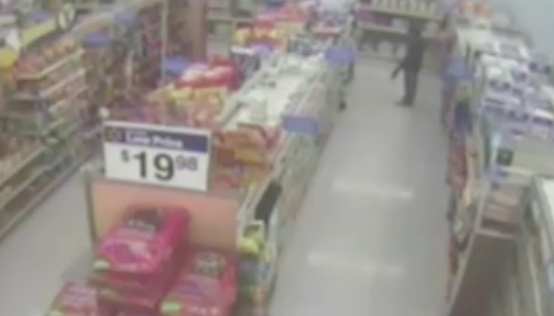
Figure 2 Mr. Crawford holding a pellet gun that he picked up off the shelf at a Walmart before he is killed by police within seconds of their arrival.
Aug. 9, 2014: Michael Brown Jr. (Ferguson, Missouri)
Unarmed Michael Brown, 18, was shot and killed by Ferguson police officer Darren Wilson.
In November, a grand jury declined to charge Wilson in the fatal shooting. Brown's death and the lack of charges against Wilson sparked protests, some of them violent, in Ferguson and across the nation.
Aug. 11, 2014: Ezell Ford (Florence, California)
Ezell Ford, a 25-year-old mentally ill man, was shot three times, including once in the back, by a white police officer. Mr. Ford was unarmed. The investigation is still ongoing, but it has been placed on an "investigative hold". So far, no charges have been filed against Sharlton Wampler and Antonio Villegas, the two officers involved.
Aug 19, 2014 Kjieme Powell, St. Louis
Just 10 days after Michael Brown was shot to death, this happened in nearby St Louis. The police were called because this man stole two soft drinks from a convenience store. The police showed up and within 20 seconds the police had shot him 12 times. Then they proceeded to handcuff the lifeless body with hands behind his back. The video is available at the link below.
https://youtu.be/j-P54MZVxMU
https://www.newsweek.com/new-video-police-shooting-2nd-man-st-louis-emerges-266041

Figure 3 Police were on the scene for just seconds when they shoot Mr Powell dead a second after this photo.
Sept. 4, 2014 Dashcam Video Shows State Trooper Shooting Black Man Reaching for His Driver’s License
State trooper rolls up on Mr. Jones and says, “Can I see your license please?” Jones reaches for his license and the policeman shoots him in a split second. Afterwards, the man says why did you shoot me? Video is available at the link below.
https://www.youtube.com/watch?v=1yEQDBSt58w
October 7, 2014 Alicia Garza publishes an explanation of the hashtag turned movement in the Feminist Wire. https://thefeministwire.com/2014/10/blacklivesmatter-2/
In her guest commentary, Garza is critical of groups that co-opt her hashtag #blacklivesmatter including groups with which she feels alliance.
October 2014 Laquan McDonald (Chicago)
https://www.theguardian.com/us-news/video/2015/nov/24/chicago-officials-release-video-showing-police-killing-of-laquan-mcdonald-video
Laquan McDonald is a suspect for breaking into vehicles. When police show up, he refuses to stop and walks away from police when he is shot 16 times. At first, police on the scene cover up for the shooting by falsifying details of the incident. Video emerges later showing a different story.
Nov. 13, 2014: Tanisha Anderson (Cleveland)
Tanisha Anderson, 37, died after officers in Cleveland allegedly slammed her head on the pavement while taking her into custody. Anderson's family said she had bipolar disorder and schizophrenia.
Nov. 20, 2014: Akai Gurley (Brooklyn, New York)
Akai Gurley, 28, was shot and killed by a police officer while walking in a dimly lit New York City public housing stairwell with his girlfriend. Gurley, who was unarmed, was pronounced dead at a hospital. New York Police Department Commissioner Bill Bratton called the shooting an "accidental discharge."
Nov. 22, 2014: Tamir Rice (Cleveland)
Tamir Rice, 12, was shot and killed by Cleveland police after officers mistook his toy gun for a real weapon. The two police officers involved, Timothy Loehmann and Frank Garmback, have not been charged. The video is available at the link below.
https://www.theatlantic.com/notes/2015/10/the-legal-murder-of-tamir-rice/410128/

Figure 4Tamir Rice (12 yrs old) is shot within seconds of police arriving on scene. He was holding a toy gun.
Dec. 2, 2014: Rumain Brisbon (Phoenix)
Rumain Brisbon, 34, was shot and killed by a Phoenix police officer who mistook a pill bottle for a weapon. The officer, Mark Rine, was not charged following a probe by the Maricopa County attorney's office, according to the New York Daily News. Jerame Reid, 36, was shot and killed by police officers in Bridgeton, New Jersey. He was a passenger in a car driven by his friend, who was pulled over by police.
Until this time, the phrases Black Lives Matter and All Lives Matter were being used interchangeably. However, a number of events that occurred between Dec 2014 and Jan 2015 polarized the movement to be only Black Lives Matter.
Dec 10, 2014 First documented incident of "black lives matter" being changed to "all lives matter" to co-opt the message from Americans who are black
Two students put up a ‘BlackLivesMatter’ poster, but Chandler Clothier, the student who designed the poster, said she was called to the principal's office and told that she failed to get prior approval for the poster and needed to change the title, "#blacklivesmatter" to "all lives matter," or take the poster down. https://www.seedsofpeace.org/protest-poster-ordered-removed-lewiston-high/
Dec 17, 2014 College administrator shouted down for saying "all" lives not "black" lives.
The apologies continued at Smith College, after President Kathleen McCartney publicly joined demonstrators and declared "all lives matter." But she was immediately denounced for not saying "black lives matter." McCartney asked forgiveness and promised not to stray from the expected language.
And then in December of 2014, two NYC police officers were killed in a targeted homicide by a troubled individual with a criminal history. It was a heinous assassination of police officers. This became a spark that ignited a movement to counter the black lives matter movement.
December 20, 2014 Police Officers Killed in Targeted Homicide
Police Officers Rafael Ramos and Wenjian Liu in Brooklyn, New York are killed in a targeted attack against police by Ismaaiyl Brinsley. Brinsley, a high-school dropout who had shot an ex-girlfriend in the stomach earlier Saturday, killed the officers and then ran from the scene to a nearby subway station, where he took his own troubled life. Those who were quick to blame Brinsley's actions solely on recent protests in New York and other cities must acknowledge his criminal past and reported mental instability. This was not an average 28-year-old New Yorker who was leading a productive life before last weekend.
December 2014 Blue Lives Matter is Created
Originating in New York City, Blue Lives Matter NYC[12]
https://en.wikipedia.org/wiki/Blue_Lives_Matter
2014 About this time, the Thin Blue Line Flag is created by a private company called "Thin Blue Line USA". Traditionally, the Blue Line Flag is represented by a blue line running horizontally across a black background. In 2014, Thin Blue Line USA, located in Michigan, redesigned the flag, creating a variation of the subdued 13-stripe American Flag, raising funds for the families of fallen officers.
https://www.brothersbeforeothers.org/history-and-hypocrisy-the-thin-blue-line-debate/
Blue Lives Matter
After the single incident by a lone individual, a few police/former police start a "blue lives matter" movement. Although the act of violence against these police is heinous, the founders of the movement choose "blue lives matter". It is a direct co-opt from the "black lives matter" movement. It is a way of creating an opposing side; you either side with black lives matter or blue lives matter. Even a policing textbook explains the movement as "A pro-police movement ... established in response to Black Lives matter..." Consider the myriad ways that the movement could have been titled such as "Support Police", or "Respect Law Enforcement". But the title chosen was a direct contrast to Black Lives Matter. Additionally, the message was not an official public service message from the Justice Department or the National Institute of Health or the National Association of Police Chiefs. And the same is true for the flag - it was not created by any governing body. It was a private company in Michigan. This was a small group of private individuals creating this for their own political and economic ends.
Blue Wall of Silence
Also worth examination in the symbolic meaning of blue lives matter, is the long history of the "blue wall of silence." The blue wall of silence, is one term given to the culture of police defending each other - even in the wake of corrupt or unlawful policing methods. This extreme value of supporting police no matter what has been manifested in trials of internal investigations and in police misconduct cases (see this link to the Marshall Project https://www.themarshallproject.org/records/605-blue-wall-of-silence). One of the highest profile cases was in Chicago with the Laquan McDonald shooting cover-up, detailed in this Chicago Tribune Timeline (https://www.chicagotribune.com/news/laquan-mcdonald/ct-graphics-laquan-mcdonald-officers-fired-timeline-htmlstory.html). This unconditional sanctioning of police tactics is widely researched and reported on. So, when some Americans hear things like "back the blue," or "blue lives matter," they equate that with the blue wall of silence and the backing of police misconduct and use of illegal force. It's seen as sanctioning lying about police misconduct and the allowing for police violation of civil rights of suspects.
Dec. 30, 2014: Jerame Reid (Bridgeton, New Jersey)
In dashcam video footage of the stop, an officer is heard claiming that there is a gun in the glove compartment. Police shouted at Reid not to exit the car, but he did, with his hands apparently in front of his chest. That's when officers Braheme Days and Roger Worley opened fire, striking Reid.
Jan. 10, 2015 "Pro-Blue Rally" Saturday on Independence Mall,
Speakers, including sitting U.S. Senator Pat Toomey, urged the public to appreciate the dangerous work that police do every day. Protesters at recent rallies against perceived police brutality in New York and Ferguson, Mo., "don't speak for America," U.S. Sen Pat Toomey (R. Pa.) told the crowd. Noting that 115 police officers died in the line of duty in the United States in 2014 -- and that 10 have already been shot this year -- Toomey called it a "great day to be standing up for our law enforcement officers" who "protect us day in and day out." With a theme that "All Lives Matter," the rally was in response to numerous recent demonstrations around the country protesting the deaths of unarmed black men by white police officers. With a theme that "All Lives Matter," the rally was in response to numerous recent demonstrations around the country protesting the deaths of unarmed black men by white police officers.
https://www.inquirer.com/philly/news/20150111_Police_supporters_gather_in_bitter_cold_on_Independence_Mall.html
The Politicization of Blue Lives Matter
Just weeks after the creation of the Blue Lives Matter group and the thin blue line flag, Senator Toomey from PA solidified the All Lives movement as a direct opposition to the Black Lives movement. If there was any doubt of the Blue Lives movement being a reaction to the Black Lives, that was erased at this rally. Toomey rallied the crowd against anyone who challenged police. His message was that even if people are simply opposing the killing of unarmed Americans who are black, those people are anti-police and anti-American. That position is reinforced by the co-opting of the American flag which was now being incorporated into the thin blue line flag. The merging of these creates the message that opposing police is unAmerican. In the meantime, the killings continued:
April 2, 2015: Eric Harris (Tulsa, Oklahoma)
Eric Harris, 44, was shot and killed by a 73-year-old reserve deputy officer who allegedly mistook his own gun for a Taser. The entire incident was captured on a dashcam video. The officer, Robert Bates, was charged with manslaughter.

Figure 5 Eric Harris a second before being shot from behind by police.
April 4, 2015: Walter Scott (North Charleston, South Carolina)
Walter Scott, 50, was shot by a police officer while running away from a traffic stop for a broken tail light. Officer Michael Slager claimed Scott had taken his stun gun. Slager was subsequently fired and charged with murder after a video surfaced showing Scott running away, his back to the officer, as Slager fired his gun. Video is available at the link below.
https://www.theguardian.com/us-news/video/2015/apr/09/north-charleston-shooting-police-scanner-video

Figure 6 Mr. Scott in green is running from a police officer when he is shot in the back.
April 19, 2015: Freddie Gray (Baltimore)
Freddie Gray, 25, died of a spinal cord injury a week after he was arrested by Baltimore police. It's still unclear how Gray sustained the injury. Officials say he was stopped after fleeing "unprovoked upon noticing police presence" and arrested for allegedly possessing a switchblade. He was put in a police van, which is where police say he suffered a medical emergency. The officers involved in his arrest were placed on leave, and on Friday, the state's attorney announced that they had been criminally charged in connection with Gray's homicide.
By August of 2015, it was clear that there was a disparity between all lives matter and black lives matter. In American discourse, they had come to represent opposing forces.
August 2015 All lives matter has attracted national attention
When asked which statement is closest to their own views, 78% of Likely U.S. Voters say all lives matter. A new Rasmussen Reports national telephone survey finds that just 11% say black lives matter. Nine percent (9%) say neither statement reflects their point of view.
http://www.rasmussenreports.com/public_content/politics/general_politics/august_2015/black_lives_matter_or_all_lives_matter
Aug. 29, 2015 Police Officer Ambushed in Texas
Ambush-style murder of Sheriff Deputy Darren Goforth at a gas station in suburban Houston. Officer Goforth is murdered for apparently no reason by Shannon Miles, a repeat offender with a history of mental illness. The aftermath of the events reveal an increasingly deep divide between police and black lives matter. A number of officials claim that this is a war on police and that police lives matter not just black lives matter. Even sitting Senator Ted Cruz says that President Obama did not even acknowledge the shooting, even though in fact, Obama did issue a statement to the family and Houston community. https://en.wikipedia.org/wiki/Shooting_of_Darren_Goforth
Sept 17, 2015 NPR Report Is There A 'War On Police'? The Statistics Say No
Seth Stoughton, a former police officer and an assistant law professor at the University of South Carolina, calls that interpretation "nonsense." "It's misleading to compare one year to another year," he says. "2013 was the safest year for police officers, ever," he says. "The safest year in recorded history." In fact, in the larger scheme of things, 2014 looks pretty normal. The number of murders of police was about the same as 2012, and actually a lot lower than 2011. The long-term trend is even more encouraging: On average, only about half as many police are murdered every year now, as compared with the 1970s. Stoughton says some of that improvement is probably due to better training, better gear and radically improved trauma care for cops who are shot. https://www.npr.org/2015/09/17/441196546/is-there-a-war-on-police-the-statistics-say-no
Nov 23, 2015 Black Lives Matter Protester beaten up at Trump rally and thrown out while crowd chants "All Lives Matter"
The important part starts around the one-minute mark of the original video, when the protester is pulled up off the floor and led away by members of the event security staff and some of the more aggressive volunteers from the crowd. The man is wearing a T-shirt bearing the slogan “Black Lives Matter”. At least one Trump supporter standing near the video camera starts chanting a refutation: “All lives matter.” It’s valuable to see images of a black man being shoved and pushed and jeered and taunted to the soundtrack of these words. In 2015, in America, those three words, “all lives matter”, are a racist slogan. Any other interpretation is wrong. Watch the video at the link below.
https://www.theguardian.com/commentisfree/2015/nov/23/all-lives-matter-racist-trump-weekend-campaign-rally-proved-it
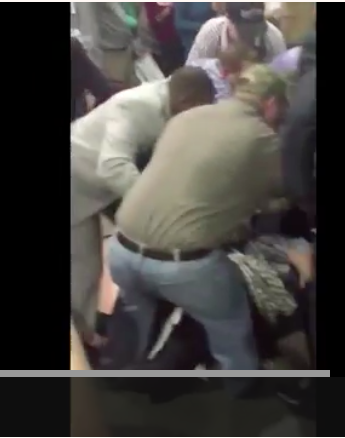
Figure 7 Black lives matter protester is beaten at Trump rally while crowd chants "All lives matter."
February 28, 2016 Candidate Trump throws out Black Lives Matter Protesters and incites the crowd with All Lives Matter Chant.
https://www.youtube.com/watch?v=kpijYTMpz3k
http://www.realclearpolitics.com/video/2016/02/28/blacklivesmatter_protests_trump_in_alabama_trump_responds_all_lives_matter.html
Trump throws out Black lives Matter Protesters and he incites the crowd by yelling "All lives matter." And if there is any doubt that Trump has been associated with the flag, see this package deal for sale:


July 5, 2016, Alton Sterling shot dead at close range by two white Baton Rouge Police Department officers in Baton Rouge, Louisiana.
The officers were attempting to control Sterling's arms, and Sterling was shot by them after reportedly reaching for the loaded 38 caliber handgun in his pocket.[4] Police were responding to a report that a man in a red shirt was selling CDs and that he had used a gun to threaten a man outside a convenience store.[5] The owner of the store where the shooting occurred said that Sterling had started carrying a gun a few days prior to the event as other CD vendors had been robbed recently. He also said that Sterling was "not the one causing trouble" during the situation that led to the police being called.[6][7][8] The shooting was recorded by multiple bystanders.
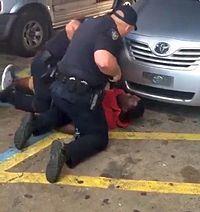
July 6, 2016 Philando Castile,[a] killed during traffic stop with three-year-old in back seat.
A 32-year-old African-American, was pulled over while driving in Falcon Heights, Minnesota, and killed by Jeronimo Yanez, a St. Anthony, Minnesota Latino police officer. Castile had been driving a car at 9:00 pm with his girlfriend, Diamond Reynolds, and her four-year-old daughter when he was pulled over by Yanez and another officer in a suburb of Saint Paul, MN.[3][4] After being asked for his license and registration, Castile had told Officer Yanez that he had a firearm, to which Yanez replied, "Don't reach for it then", and Castile said "I'm, I, I was reaching for..." Yanez said "Don't pull it out", Castile replied "I'm not pulling it out", and Reynolds said "He's not..." Yanez repeated "Don't pull it out"[5] and then shot Castile seven times.[6]
https://en.wikipedia.org/wiki/Shooting_of_Philando_Castile
https://www.npr.org/2016/07/07/485049343/minn-man-shot-by-police-while-inside-a-car-with-a-woman-and-child
https://www.cnn.com/2017/06/20/us/philando-castile-shooting-dashcam/index.html
July 8, 2016 Five Dallas Officers Killed by Micah Johnson
Johnson had no direct ties to any protest or political group, either peaceful or violent, but his Facebook page showed that he supported the New Black Panther Party, a group that has advocated violence against whites, and Jews in particular. The attack appeared to be the deadliest for law enforcement officers in the United States since Sept. 11, 2001.
July 2016 On Google, both Black Lives Matter and Blue Lives Matter peak in searches.
In the Google Trend data below, it is evident that in 2015 and 2016 the google searches for blue lives matter followed an increase in searches for black lives matter. In other words, blue lives matter was a reaction to black lives matter. The movement became and opposition force, not a contemporaneous movement.

Figure 8This comparison of google searches shows that in 2015and 2016, Blue Lives Matter has followed Black Lives Matter.
July 18, 2016, Charles Kinsey, a mental health therapist, was shot by police in North Miami, Florida.
Kinsey, had been retrieving his autistic 23-year-old patient, Arnaldo Rios Soto, who had wandered from his group home. Police encountered the pair while searching for an armed suicidal man. Kinsey was lying on the ground with his hands in the air and trying to negotiate between officers and his patient when he was shot. While Kinsey lay on the ground with his hands raised, one officer, identified by the city as North Miami Police Department Special Weapons and Tactics (SWAT) team member Jonathan Aledda, fired three rounds from a rifle, with one bullet striking Kinsey in the leg.[1][6] The shooting occurred a block from the group home where Kinsey worked at 1365 NE 128th St.[7]
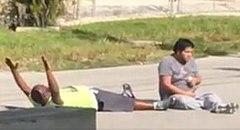
https://en.wikipedia.org/wiki/Shooting_of_Charles_Kinsey
November 2, 2016, Des Moines Police Department officer Anthony Beminio and Urbandale Police Department officer Justin Martin were killed in separate "ambush-style" shootings in and near Des Moines, Iowa. The perpetrator in both shootings, identified as 46-year-old Scott Michael Greene of Urbandale, Iowa, was apprehended by police hours later. Greene was taken into custody unharmed! President Obama publicly praised the police officers and decried the violence against them as heinous.

November 2016 Joshua Beal is shot 8 times by an officer with a history of racial incidents
Beal was shot eight times during a fight with plainclothes officers that erupted after a vehicle in a motorcade leaving a funeral he was part of was stopped by an off-duty firefighter for blocking a fire lane in Mount Greenwood, a majority-white Southwest Side neighborhood home to many members of law enforcement. Beal and the group he was with were black and the shooting sparked days of contentious protests. One of the officers, Sgt. Thomas Derouin, has a history of being involved in racially charged cases of excessive force, as detailed in The Chicago Reporter’s Settling for Misconduct database of all Chicago police lawsuit settlements from 2011 to 2017. He was named in the $55,000 settlement for a 2012 case in which officers tased, threw to the ground, and pressed a gun to the head of a man who they also used racial epithets against. The man was later cleared of charges. Racial epithets were also used in a 2008 incident, which was later settled for $10,000, in which Derouin and another officer are alleged to have violently stopped a man in South Shore whose ribs were broken in the encounter. The charge against the man was later dismissed. Derouin also has more than 25 complaints filed against him, which is more than 94% of other officers, according to the Citizens Police Data Project, including allegations of use of force, illegal search, and false arrest. https://www.chicagoreporter.com/chicago-officer-cleared-of-shooting-joshua-beal-has-history-of-racially-charged-encounters/
August 5, 2017 Thin Blue Line flag displayed at Portland rally of Proud Boys and Patriot Prayer group
https://www.timesofisrael.com/police-clear-right-wing-rally-in-portland-as-scuffles-break-out/
From the Southern Poverty Law Center and Anti-Defamation League, Proud Boys and leaders regularly spout white nationalist memes and maintain affiliations with known extremists. They are known for anti-Muslim and misogynistic rhetoric. Proud Boys have appeared alongside other hate groups at extremist gatherings like the "Unite the Right" rally in Charlottesville. Indeed, former Proud Boys member Jason Kessler helped to organize the event, which brought together Klansmen, antisemites, Southern racists, and militias. Kessler was only “expelled” from the group after the violence and near-universal condemnation of the Charlottesville rally-goers.
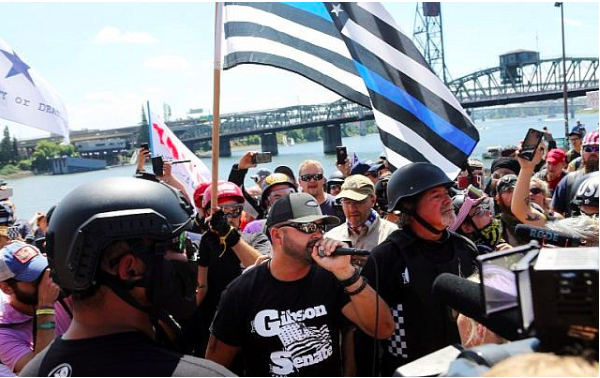
August 12, 2017 Charlottesville thin blue line flag was used by white nationalist groups
During the Unite the Right rally in Charlottesville in 2017, the thin blue line flag was used by white nationalist groups to symbolize support for police and opposition to the Black Lives Matter movement.[19][20]

Figure 9 The Vanguard America Flag, a Neo-Nazi Symbol being flown with the Thin Blue Line Flag
2017 Multnomah County Courthouse removed the flag after it gained notoriety with the Charlottesville white supremacists.[21]
"The flag—a black-and-white US flag with a single blue stripe across its middle—was created as a way to honor fallen officers. But more and more, it’s been co-opted by fringe-right and racist groups. It was paraded through the streets of Charlottesville, Virginia, during recent white supremacist demonstrations, and unfurled by Donald Trump supporters at a contentious “free speech rally” held in Portland in early June. As a woman of color, how it could be interpreted is worrisome for me because of the KKK and white supremacists, and the murders of innocent people who are just trying to stand up for each other’s human and civil rights. I believe that, to most of our public safety officers, this was meant to be a symbol to honor fallen public safety officers. My heart goes out to those families and those officers. Every time they put on a uniform I know that they are risking their lives. It’s really important we embrace that ultimate sacrifice. As a person of color, I can also see how that would be misinterpreted as a commentary on persons of color. It’s a sign of disrespect to some people."
https://www.portlandmercury.com/news/2017/08/30/19282847/county-commissioner-lori-stegmann-got-a-controversial-flag-removed-from-the-courthouse

November 11, 2018, Jemel Roberson was shot by a Midlothian police officer
Roberson was a 26-year-old African American security guard for Manny's Blue Room Bar in Robbins, Illinois when he was fatally shot by Ian Covey, a police officer responding to a call of shots fired at the bar.[1] Roberson was working for the bar as a security guard when four people were non-fatally shot by a gunman. After Roberson subdued and pinned the shooter to the ground, he was shot by a Midlothian police officer arriving at the scene. Witnesses stated that Roberson was wearing a vest that had the word "SECURITY" printed on it, while an Illinois State Police (ISP) preliminary investigation stated he was wearing plain black clothing with no markings identifying him as security.
Between 2017 and 2019, the flag becomes a co-opted symbol of white power/white nationalism and it also becomes recognized as an unofficial flag that is not/should not be part of government sanctioned symbols:
In July 2019, the "Thin Blue Line" American Flag was put up by residents of York, Maine, as a way to pay tribute to a local police officer who was shot and killed in the line of duty decades ago. Due to locals being concerned that the flag was being used as a symbol of white supremacy, the flag was subsequently taken down.[22]
In October 2019, the Montgomery County Police Department in Maryland was gifted a wooden “Thin Blue Line” flag made by a citizen in recognition of National First Responders Day. The wooden flag was put up in the 5th district police station. After backlash from the public, the flag was taken down in November 2019.[23]
NPR reported on some of the response:
"The flag provides a symbol of support to some but it is a symbol of dismissiveness to others," he said in a statement. "Under my administration, we are committed to improving police relations with the community and will immediately address any action that stands against our mission."
Elrich's decision drew decidedly mixed responses from the public.
Maryland Del. Gabriel Acevero (D-Montgomery) backed Elrich's move, writing on Twitter: "This is not the American flag. It's a violation of the flag code that prohibits altering of the flag in this manner & an affront to the #BlackLivesMatter protests that I & others were a part of. Stop pandering & focus on police reform!"
November 14, 2019 Stevenson High School puts the Blue Lives Matter flag up in the commons.
I emailed the administration that day, but the flag stayed up for the rest of the week!
January 6, 2020. Police Officers are assaulted by people summoned to the Capitol at Trump's request. (documented in this video evidence) and (this video shows Michael Fanone being beaten)
The NYT reports,
One officer lost the tip of his right index finger. Others were smashed in the head with baseball bats, flag poles and pipes. Another lost consciousness after rioters used a metal barrier to push her into stairs as they tried to reach the Capitol steps during the assault on Jan. 6.... The Capitol assault resulted in one of the worst days of injuries for law enforcement in the United States since the Sept. 11, 2001, terrorist attacks. About 140 officers — 73 from the Capitol Policeand 65 from the Metropolitan Police Department in Washington — were injured, the departments have said. They ranged from bruises and lacerations to more serious damage such as concussions, rib fractures, burns and even a mild heart attack....One Capitol Police officer, Brian D. Sicknick, was killed, and investigators are increasingly focused on whether chemical irritants were a factor in his death, according to a senior law enforcement official. The Capitol Police said in a statement that Officer Sicknick died from injuries sustained “while physically engaging with protesters.” Two officers involved in the response have died by suicide, the local police have said.
The number of those injured does not account for the dozens, if not hundreds, of officers who law enforcement officials estimate will suffer in years to come with post-traumatic stress disorder and the dozens who most likely contracted the coronavirus from unmasked Trump supporters who overran the Capitol, the experts and officials said.... .
On May 29, 2020 Dave Patrick Underwood, an officer in the Department of Homeland Security’s Federal Protective Service was shot and killed by two men, one of whom was in the military and linked to right-wing extremism. Federal officials said Carrillo, an Air Force sergeant, was associated with the "Boogaloo" movement- described by prosecutors as a far-right extremist group that calls for a second civil war. From Fox News 6 in Oakland,
Federal authorities said he went to Oakland with the express purpose of killing police and using the protests as cover.
"To be clear, Carrillo elected to travel to Oakland to conduct this murder and take advantage of a time when this nation was mourning the killing of George Floyd. There is no evidence that these men had any intention to join the demonstration in Oakland," FBI Special Agent John Bennett said in a statement. "They came to Oakland to kill cops."
On Aug 23, 2020 Jacob Blake was shot in the back seven times and paralyzed from the waist down while his children watched from the back seat of their car. (ABC reports here)

On Aug 25, 2020 A large group of white males armed with assault rifles and military gear show up in Kenosha claiming to be protecting businesses. A few of the white vigilantes claim to not like police and in agreement with the protesters that police are the problem (see this post from Newsweek, which cites a tweet from the Daily Caller), however, some of the vigilantes are given water by police and even thanked by them despite that these vigilantes are in violation of curfew and heavily armed. USA Today details much of the incident here, and the Kenosha Journal details it here. One of the armed protesters who the police gave water to is Jacob Rittenhouse who killed 2 people later that night. The incident was captured on video and posted to Twitter here.


After killing them, Rittenhouse puts his hands in the air and his rifle is hanging off of his shoulder, but police drive right by him and tell him to go home.
More info. from Insider here.
On Aug 26, 2020, at the RNC, Mike Pence said in his speech that Officer Underwood (May 29, 2020 above) was killed during the protests in Oakland, which is a highly misleading statement that makes people think Officer Underwood was killed by BLM protesters.
Despite the complex and layered history of the thin blue line American flag and the corresponding blue lives matter movement, I do think that first responders deserve recognition and support of the public. Sociology teaches us that people interact based on shared meaning in everyday life and this meaning is evident in both material cultural and nonmaterial culture. There are flags that share the meaning of supporting first responders without denigrating the black lives matter movement. Here are examples:
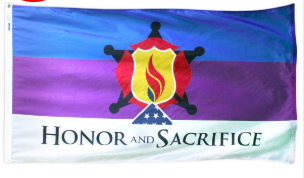
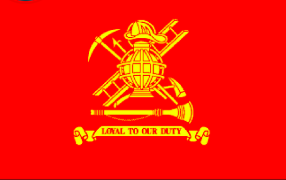
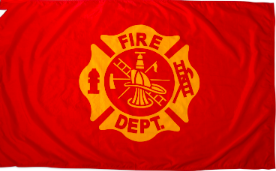
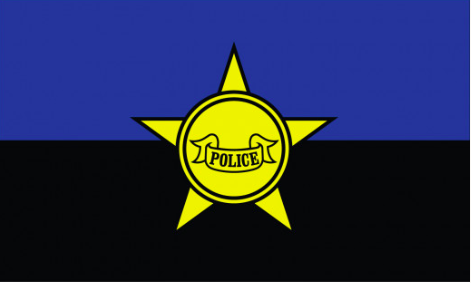
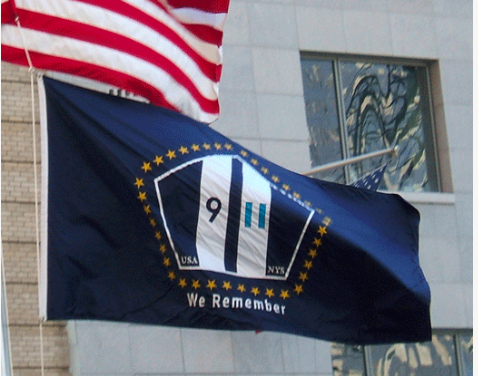
Other Resources
Using the U.S. flag to support police makes any criticism of police unAmerican
https://www.bupipedream.com/opinions/111226/the-blue-lives-matter-movement-is-more-than-just-an-attempt-to-undermine-black-lives-matter/
Against the backdrop of the American flag, any condemnation of the police is not only one against their actions or the general institution, but of a sacred American bastion. Criticisms of the police, however pushed by the Black Lives Matter movement and its supporters, then becomes viewed as ostensibly un-American. The Blue Lives Matter movement principally manufactured the haphazard “us versus them” narrative, which has triggered an imbalanced protection of an occupation over the fundamental rights of minorities. The “Blue Lives” in our country operate with such supremacy that it enables dangerous ideologies and soundly guarantees to reproduce further fatalities and turmoil.
A Flag for Trump’s America; The power of strength
By Jeff Sharlet
https://harpers.org/archive/2018/07/a-flag-for-trumps-america/
Divergent discourse between protests and counter-protests: #BlackLivesMatter and #AllLivesMatter.
https://www.ncbi.nlm.nih.gov/pubmed/29668754
Since the shooting of Black teenager Michael Brown by White police officer Darren Wilson in Ferguson, Missouri, the protest hashtag #BlackLivesMatter has amplified critiques of extrajudicial killings of Black Americans. In response to #BlackLivesMatter, other Twitter users have adopted #AllLivesMatter, a counter-protest hashtag whose content argues that equal attention should be given to all lives regardless of race. Through a multi-level analysis of over 860,000 tweets, we study how these protests and counter-protests diverge by quantifying aspects of their discourse. We find that #AllLivesMatter facilitates opposition between #BlackLivesMatter and hashtags such as #PoliceLivesMatter and #BlueLivesMatter in such a way that historically echoes the tension between Black protesters and law enforcement. In addition, we show that a significant portion of #AllLivesMatter use stems from hijacking by #BlackLivesMatter advocates. Beyond simply injecting #AllLivesMatter with #BlackLivesMatter content, these hijackers use the hashtag to directly confront the counter-protest notion of "All lives matter." Our findings suggest that Black Lives Matter movement was able to grow, exhibit diverse conversations, and avoid derailment on social media by making discussion of counter-protest opinions a central topic of #AllLivesMatter, rather than the movement itself.
Black Lives Matter or All Lives Matter? Color-blindness and Epistemic Injustice*
Ashley Atkins
Those who take ‘All lives matter’ to oppose ‘Black lives matter’ take the latter to mean something like ‘Only black lives matter.’ Those who regard this exclusionary construal as mistaken hold the error to be due to an ideology of color-blindness. It has further been argued that the ideologically-motivated suppression of racial discourse has resulted in an epistemic injustice, blinding objectors to the fact that ‘Black lives matter’ really means ‘Black lives matter, too’. I will argue that attempts to make sense of this interpretive response in terms of color-blindness are mistaken. As I will discuss, the interpretive debates surrounding the words ‘Black lives matter’ are reminiscent of those surrounding ‘Black Power,’ which unfolded long before color-blindness could be said to have been a prevailing ethos. Critical affirmations such as ‘Black Power’ and ‘Black lives matter’ have proved difficult for many interpreters to understand because of the way that they manifest resistance to white supremacy, eschewing both racial exclusion and racial inclusion (the latter fact being masked by inclusive reconstructions such as ‘Black lives matter, too’). As I argue, however, the critical function of these statements calls into question the applicability of standard accounts of epistemic injustice.
https://www.tandfonline.com/doi/full/10.1080/02691728.2018.1483879
Current CNN ongoing list of controversial police encounters
https://www.cnn.com/2015/04/05/us/controversial-police-encounters-fast-facts/index.html
My blogpost about Black Lives Matter
Bob
Bob is sitting at the dinner table. Everyone else there gets a plate of food except Bob. Bob says, “Bob deserves food.” Everyone at the table responds with, “Everyone deserves food!” and they continue eating. Although everyone deserves food is a true statement, it does nothing to actually rectify the fact that Bob has NO food!
The Doctor
A man goes to the doctor for a broken arm, and the doctor starts examining the rest of the man’s body. The injured man says, “Doc, it’s my arm that’s broken; everything else is fine,” and the doctor responds, “All bones matter.” Of course they all do, but they aren’t the ones broken now!
Jesus
When Jesus said “Blessed are the poor, “no one stood up and yelled “Blessed is everyone!”
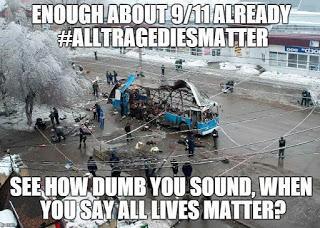
Randall Barnes puts February 2016 into perspective with a detailed analysis of Blackish.
My blogpost about implicit bias.
The Police Officer's Dilemma from University of Colorado at Boulder
And another example of implicit bias is from the University of Chicago's Joshua Corell who showed how people react in a split second when they confront someone with a weapon. Soc Images explains it here. See here for a link to the game and conclusions.

https://www.vox.com/policy-and-politics/2017/2/9/14562560/trump-police-black-lives
How “Blue Lives Matter” went from a reactive slogan to White House policy
President Trump’s latest executive orders are a show of support for police.
By Dara Linddara@vox.com Feb 9, 2017, 3:50pm EST
